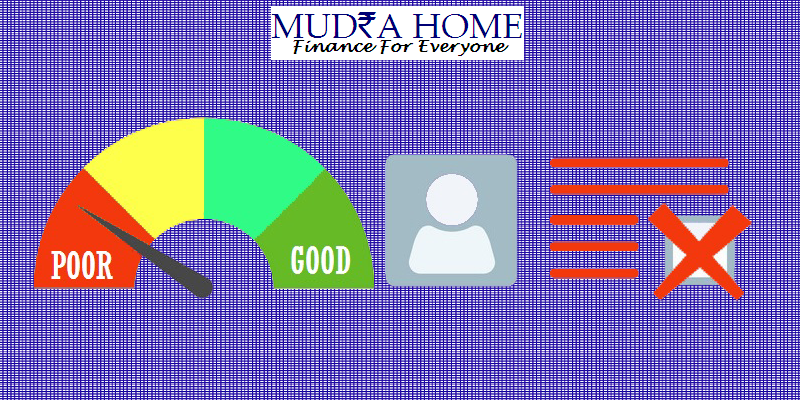
Suhana, got her first campus placement in an International company with an excellent salary. Being from a middle class family, her dreams were big and she was highly motivated to achieve the best for herself. She wanted to give the best to her parents and her siblings too, who helped and motivated her in every way. Her first dream was to have a big house and a car for which, as per her calculations, her salary was sufficient to cover the costs of the loan as well as the other expenses.
After working for consecutive 12 months and collecting a lumpsum amount for the down payment she approached the Bank for the loan to borrow. After filling out the application form and submitting all the related documents online she was waiting for the response from the Bank. She was surprised to know that the Bank has rejected her home loan application. She wanted to know the reason behind the rejection. The reason seems to be very small but it is an important part of the loan amount calculation process, i.e the credit score. Yes, her credit score was – 1.
Anyone who has ever taken a home loan will always suggest you to check your CIBIL (Credit Information Bureau of India Limited) score before you approach any Bank/ Nbfc or any other financial institution. When you apply for the home loan or any other form of credit, the Bank/ NBFC will check your CIBIL score to calculate your eligibility for the home loan.
In order to understand what is checked in your CIBIL report by the lender, it is important to read and understand the CIBIL report.
There has been much said about CIBIL and credit scores. The credit score is a numerical expression based on the analysis of the credit files that represents the credit worthiness of an individual. A CIBIL is a Credit Information Bureau that keeps the track of your credit related activities. The records related to your credit card and loans are submitted by the Banks/ NBFC’s and other financial institutions to the bureau. Based on these records the bureau generates a report known as Credit Information Report (CIR) or the credit report and the credit score.
The credit score is a 3 digit number that ranges between 300 to 900, with 900 being the highest score. The loan amount is also given to those whose credit score falls in the range of 500, 600 or 700 depending on the case. But there are also scores ranging from 0 to 1. In fact, your CIBIL score can also be -1.
Mudrahome is here to guide you on what happens if your CIBIL is -1.
• Type of credit (secured or unsecured)
• The volume of loan applications
• Demographic information like age, income, location, employer etc.
• The number of loan enquiries
• Credit utilisation ratio (credit is used by you, as against how much is offered to you).
Let’s understand what does the negative CIBIL score (-1) denote.
CIBIL score of – 1 refers to no credit history whereas the credit score of 1 refers to a credit history of less than 1 year. CIBIL score of 0 refers to non availability of credit history. If you do not have any previous borrowing history, no credit card and no track record that supports your credit worthiness then the CIBIL will assign you a score of -1. CIBIL score of -1 is also known as ‘NH’ or ‘No History’. For any lender if the CIBIL score is -1, this mean that there is nothing to look at, in the credit history of the applicant, because there is no loan or credit card which can give the clear picture of your repayment track.
But, the CIBIL score of -1 does not mean that you cannot borrow a home loan or any other loan. However, Banks/ NBFC’s and other financial institutions move further for credit appraisal of home loan by analysing income proofs, the Know Your Customer (KYC) documents, employer and the employment details, documents of ownership and any other source of income)(if you have) etc., despite your CIBIL score being -1.
Every lender has certain internal credit policies to analyze and sanction the home loan cases with credit history of less than a year.
To begin with, this is important to understand the fact that no lender will deny your home loan application just because your CIBIL score is -1.
Just because you lack credit history, and your CIBIL score is -1, does not mean that you are not credit worthy and does not stand in reliable customer queue.
Yes, you have to submit all income proofs (salary slips, bank statement that reflects a regular salary credit, Form-16 etc.), tax returns, employment proof and may be a letter of recommendation from your employer etc. You can also make your case strong by highlighting all your other strong points like other sources of income, average bank balance, bonuses or reimbursements received in a particular period of time, an increment letter, good number of assets with zero liabilities etc. If you are planning to involve a co-applicant on the loan, you have to provide his or her credit history too. It is always better to choose a person who has some form of credit detail or history. Through this the lender will be able to assess some repayment practice or pattern for you.
After the home loan amount is sanctioned and disbursed, a regular repayment of all your home loan equated monthly instalments (EMIs) will end you up to create a good CIBIL score for yourself which will help you in borrowing on easy terms and conditions in future.
